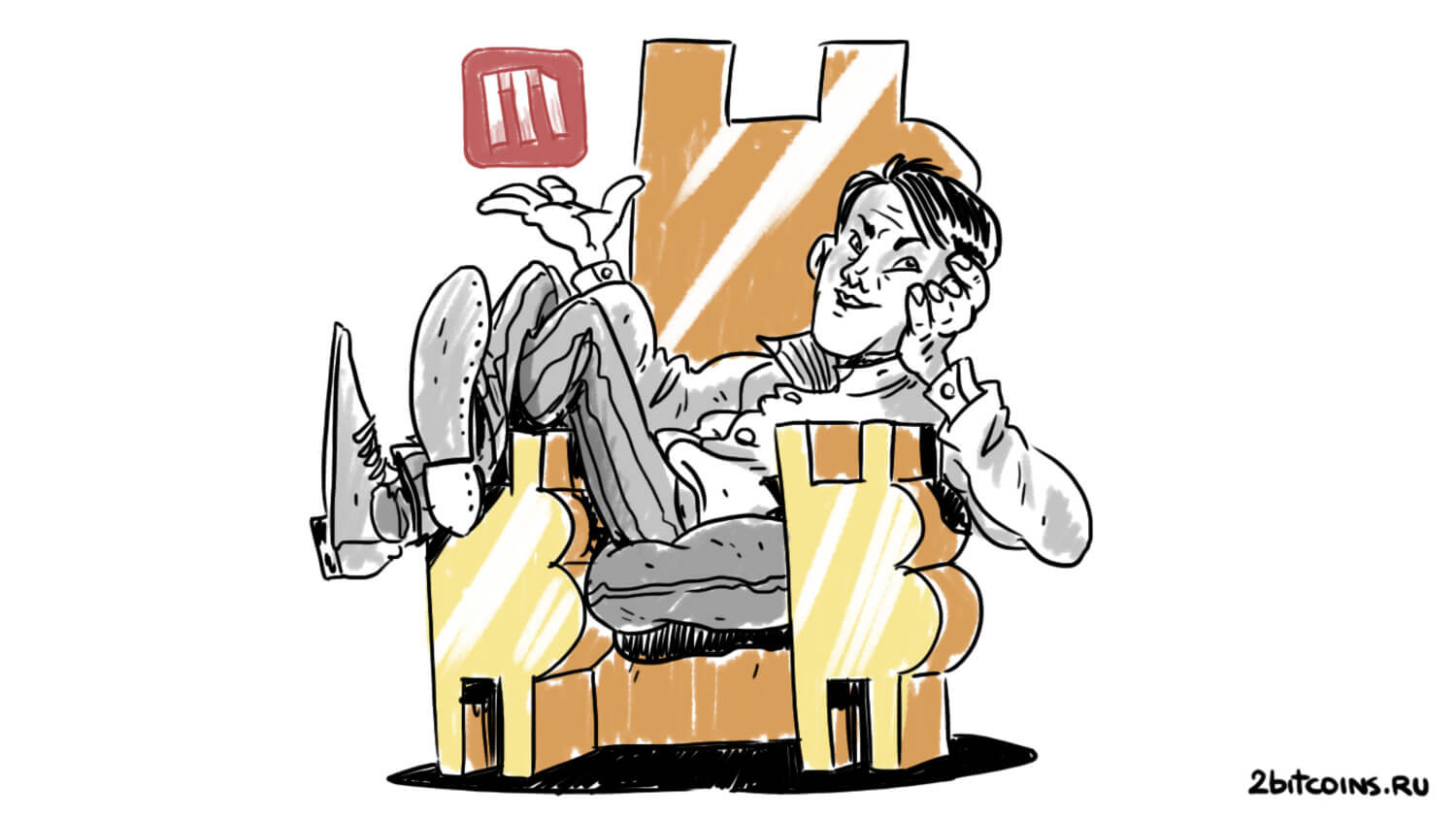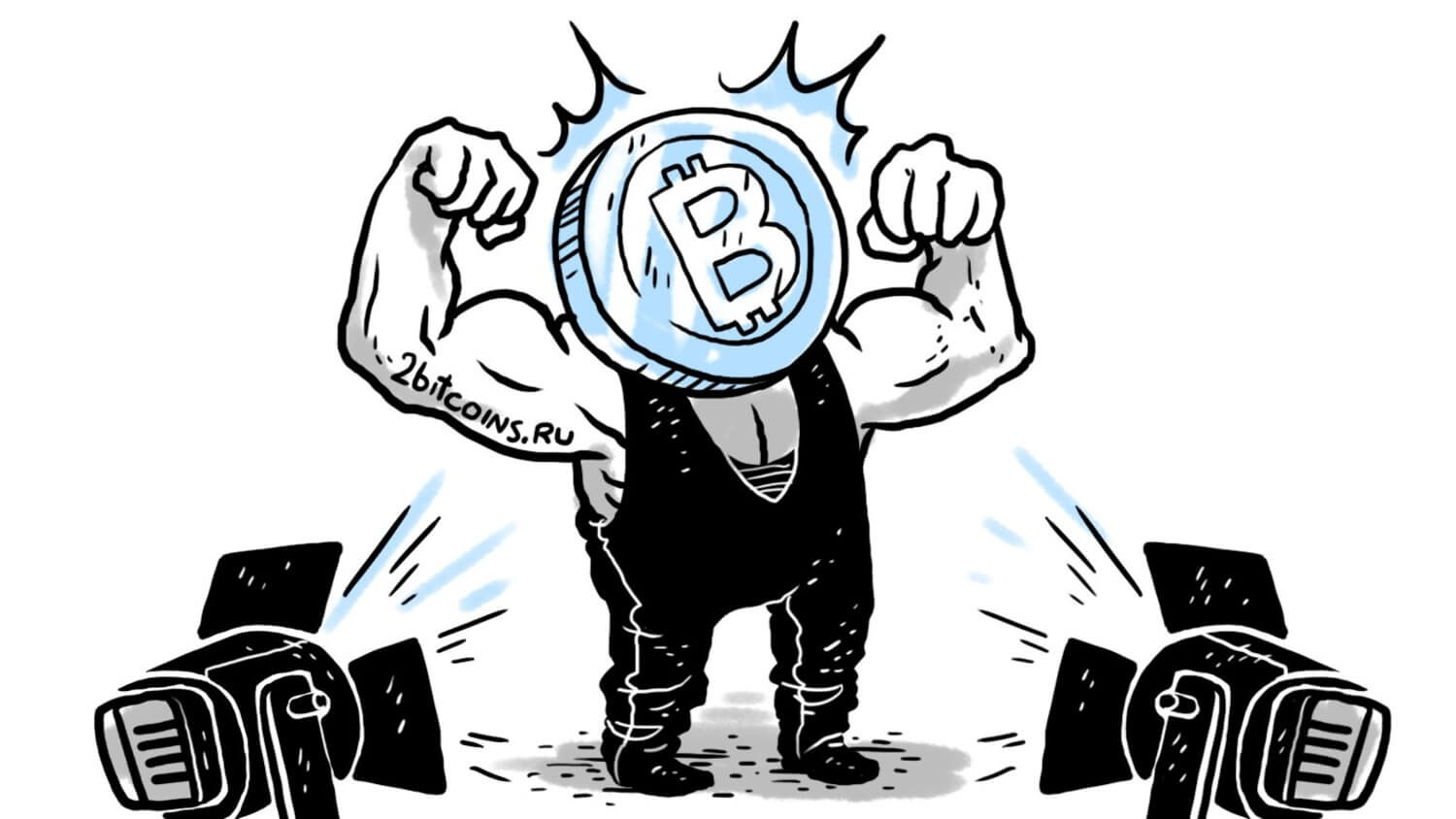Etherium creator Vitalik Buterin has criticised MicroStrategy co-founder MicroStrategy’s recommendations on cryptocurrency storage. Why?
MicroStrategy Executive Chairman Michael Saylor gave an interview the day before, during which he advised viewers to deposit their crypto with large financial organisations. Such a comment naturally caused a wave of discontent in the crypto community, because in essence Saylor opposes the decentralisation of the digital asset ecosystem. The camp of critics was also joined by the creator of Etherium Vitalik Buterin, who shared his vision of the situation.

Recall that Michael Saylor recommended that cryptocurrency holders engage with organisations that are too big to fail. On top of that, the MicroStrategy co-founder called fans of non-custodial storage “paranoid cryptoanarchists.”

Michael Saylor at a MicroStrategy presentation
Some users responded by admitting that Saylor was making recommendations to big companies that are going to get in touch with digital assets and start accumulating bitcoins. However, in any case, the entrepreneur not only insulted fans of decentralisation, but also gave reason to doubt that he supports such ideals in general.
How to properly store cryptocurrencies?
Vitalik shared his thoughts in response to a tweet by Jameson Lopp, a popular representative of the crypto community. The latter stated that self-storage of cryptocurrency is not only “a sign of a paranoid caveman.”
Buterin admitted that he himself has been spreading similar narratives quite often. Here’s a rejoinder on the subject.
I’ve probably done more than most to spread the caveman trope. By the way, I consider those remarks of mine to be outdated. And I’m happy to say that I think Sailor’s comments are simply insane.

MicroStrategy executive chairman Michael Saylor
According to Buterin, Saylor is surely in favour of developing the digital asset sphere in the face of the clear presence of regulators. Here’s his cue.
He seems to be clearly in favour of a regulatory-dominated approach to protecting cryptocurrency users. This is where organisations like BlackRock or Fidelity hold the assets, and all lawmakers and law enforcement are invested in those organisations. There are plenty of precedents for how this strategy can fail, and as far as I’m concerned, it’s not what crypto needs.
Previously, Sailor did call for regulators to intervene in what is happening with cryptocurrencies based on the Proof-of-Stake or Proof-of-Stake consensus algorithm. Moreover, the MicroStrategy co-founder referred to such coins as securities, meaning he was essentially calling for the SEC's help.
At that time, representatives of the crypto community criticised Michael. Firstly, the stories about the alleged belonging of coins to the category of securities - this is clearly not about decentralisation. Secondly, in this case, Sailor was actually asking regulators to create problems for coins that could technically be considered competitors to Michael's beloved Bitcoin.

The power of Bitcoin and other cryptocurrencies
Eric Voorhees, founder of the ShapeShift platform, also reacted to the event. According to him, Michael Saylor’s criticism was well deserved, as the ability to withdraw BTC to a personal non-custodial wallet is “a mechanism that prevents the centralisation and corruption that is inevitable with any other approach”. Here’s Voorhees’ rejoinder.
That Sailor so easily dismisses this fundamental principle is completely unacceptable and deserves to be strongly criticised.

ShapeShift CEO Eric Voorhees
According to Cointelegraph’s sources, in an interview with Blockware principal analyst Joe Burnett back in 2022, Saylor gave several examples of why cryptocurrencies should be held by large centralised intermediaries.
This came just three weeks after one of the crypto industry’s most high-profile events – the collapse of the FTX exchange. Then it turned out that the management of the trading platform used the clients’ money without their knowledge. Moreover, the coins were used to purchase real estate, donations to political campaigns and trading.
At the same time, FTX problems arose because of the related trading company Alameda Research. Then a document describing its financial condition appeared online. It turned out that the giant held most of its funds in the native token of the FTX exchange called FTT. Accordingly, its position was very precarious.
In response to the news, users of the cryptocurrency exchange began to withdraw coins from their accounts en masse. This is how it became clear that the actions of the platform’s management led to the formation of a huge financial hole. The shortage of funds was estimated at $8-9 billion.

Former head of crypto exchange FTX Sam Bankman-Fried
The FTX story proved once again that centralised storage of cryptocurrencies is not the best solution. Of course, storing digital assets on large platforms like Binance or Kraken will not end with their loss tomorrow.
However, the FTX experience has shown that even major industry players can disappear, and in a fairly short period of time. In this regard, all fans of cryptocurrencies should familiarise themselves with the concept of non-custodial vaults, cid-phrases and the features of hardware wallets. In this case, the chances of preserving coins for a long period of time will become much higher.
Michael Saylor's fresh comments are definitely a blow to his reputation within the crypto community. Still, there is now reason to believe that the entrepreneur does not care about the ideals of decentralisation and independent digital money. Well, he interacts with Bitcoin primarily for the sake of making money and the novelty of the trend.















